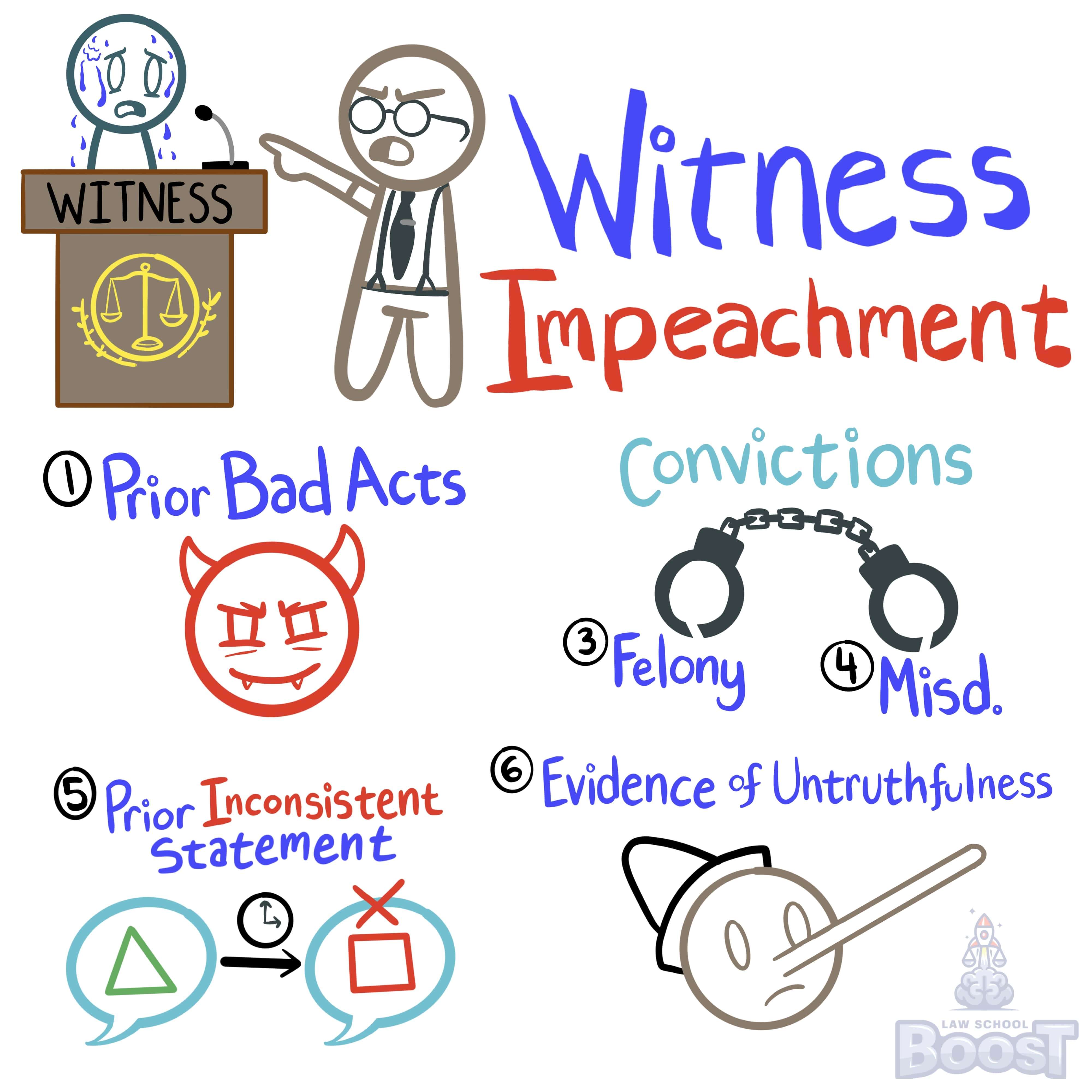🦅
Federal Evidence • Witness Impeachment
EVID#098
Legal Definition
Opinion and reputation testimony that bears on a witness's truthfulness or untruthfulness is admissible only after the witness's character for truthfulness has been attacked.
Plain English Explanation
In court, it's important to know if a witness is likely to tell the truth. The rule here is about using two kinds of evidence to check this: opinion and reputation.
"Opinion" means what someone personally thinks about the witness's truthfulness based on their interactions. For example, a coworker might say, "In my opinion, Sam always tells the truth at work."
"Reputation" is more about what a group of people generally think about the witness. It's like a common belief in a community or among a group of people who know the witness. For example, people might say, "Bob has a reputation in our neighborhood for being a liar."
This rule exists to help the court decide whether a witness's words are reliable. If many people think a witness often lies, the court might be more cautious about believing them. Conversely, if the witness is generally known for being honest, their words might be taken more seriously.
"Opinion" means what someone personally thinks about the witness's truthfulness based on their interactions. For example, a coworker might say, "In my opinion, Sam always tells the truth at work."
"Reputation" is more about what a group of people generally think about the witness. It's like a common belief in a community or among a group of people who know the witness. For example, people might say, "Bob has a reputation in our neighborhood for being a liar."
This rule exists to help the court decide whether a witness's words are reliable. If many people think a witness often lies, the court might be more cautious about believing them. Conversely, if the witness is generally known for being honest, their words might be taken more seriously.
Hypothetical
Hypo 1: Bob is on trial for fraud, and Sam testifies that Bob admitted to the fraud. However, Bob's lawyer presents several of Sam's colleagues who state, "In our opinion, Sam often exaggerates the truth." Result: The court allows this opinion testimony to assess Sam's credibility as a witness.
Hypo 2: In a property dispute, Sam testifies that he heard Bob confess to lying about the property boundaries. Bob's lawyer introduces evidence that Sam has a reputation in the community for being dishonest. Result: The court considers this reputation evidence to determine how much to trust Sam's testimony.
Hypo 3: During a trial, Bob claims he witnessed Sam committing a crime. However, Sam's lawyer presents a neighbor who says, "Bob is known in our neighborhood for making up stories." Result: The court allows this testimony about Bob's reputation to challenge the reliability of his witness statement.
Hypo 2: In a property dispute, Sam testifies that he heard Bob confess to lying about the property boundaries. Bob's lawyer introduces evidence that Sam has a reputation in the community for being dishonest. Result: The court considers this reputation evidence to determine how much to trust Sam's testimony.
Hypo 3: During a trial, Bob claims he witnessed Sam committing a crime. However, Sam's lawyer presents a neighbor who says, "Bob is known in our neighborhood for making up stories." Result: The court allows this testimony about Bob's reputation to challenge the reliability of his witness statement.
Visual Aids

Related Concepts
How may a witness be <impeached>?
In California, how may a witness be impeached?
When attempting to impeach a witness, how do courts handle the admissibility of evidence related to felony convictions?
When attempting to impeach a witness, how do courts handle the admissibility of evidence related to misdemeanor convictions?
When attempting to impeach a witness, how do courts handle the admissibility of evidence related to prior inconsistent statements?
When attempting to impeach a witness, how do courts handle the admissibility of evidence related to specific instances of conduct and prior bad acts?
When attempting to impeach a witness in California, how do courts handle the admissibility of evidence related to felony convictions?
When attempting to impeach a witness in California, how do courts handle the admissibility of evidence related to misdemeanor convictions?
When attempting to impeach a witness in California, how do courts handle the admissibility of evidence related to prior inconsistent statements?
When attempting to impeach a witness in California, how do courts handle the admissibility of evidence related to specific instances of conduct and prior bad acts?
When attempting to impeach a witness in California, how do courts handle the admissibility of evidence under Proposition 8?


